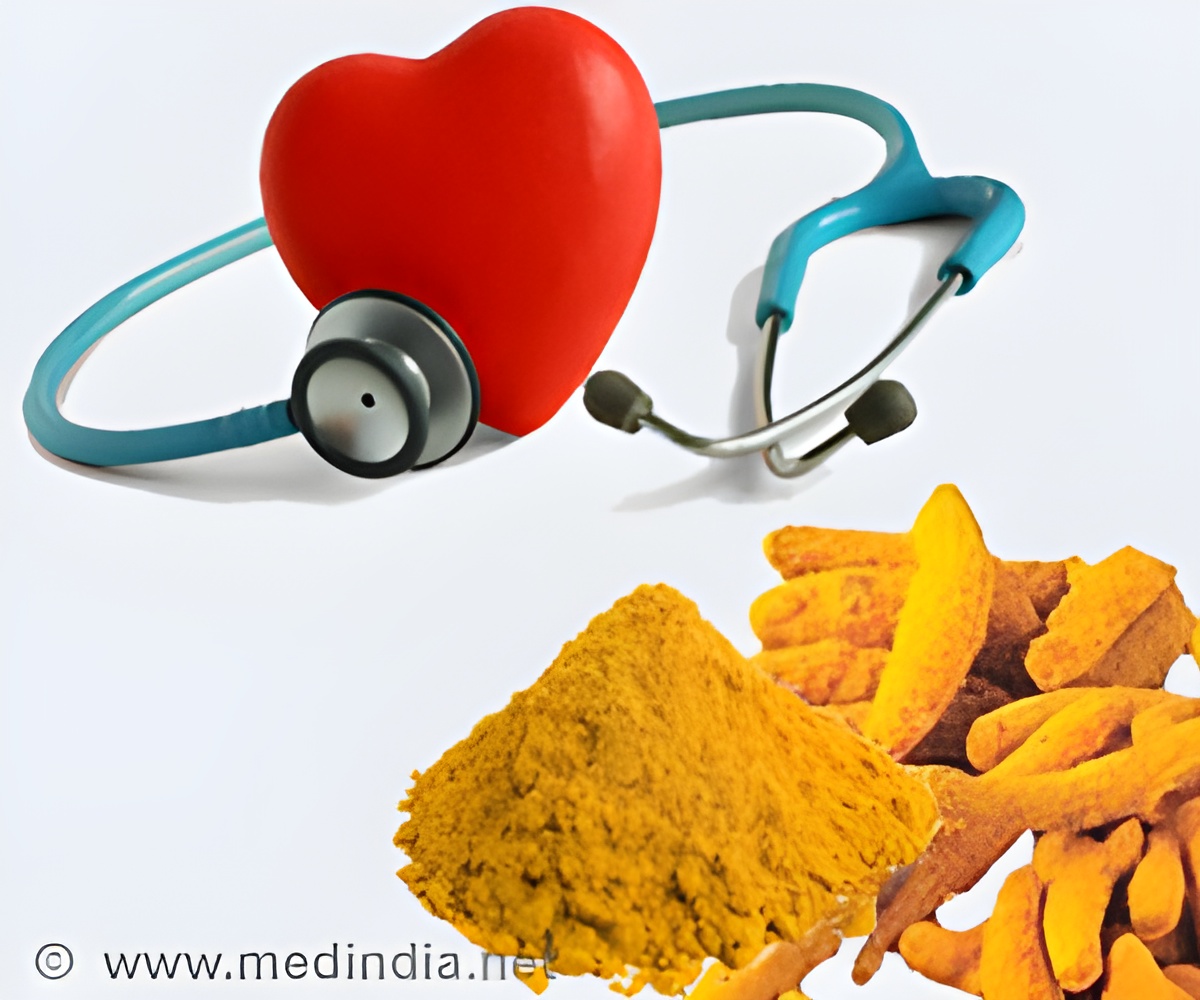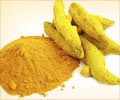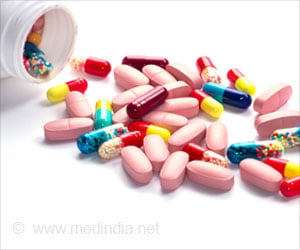Curcumin in the turmeric has the potential to prevent cardiac hypertrophy and heart failure in type-1 diabetes patients.

In this study, published in the latest issue of the same journal, the researchers set out to evaluate the effect of NCD on signaling mechanisms involved in thickening of the heart muscles (cardiomyocyte hypertrophy) in type-1 diabetes with cardiomyopathy. They also wanted to find out if HO-1 has any role to play in this action.
Cell signaling is a complex mechanism of communication for coordinating cell actions in which the cells perceive and respond to their microenvironment. When this 'information processing' goes wrong, it may result in diseases such as cancer, immunity diseases, and diabetes.
This study was performed at the Faculty of Medicine, Cairo University, Egypt. The researchers divided 140 adult rats into control group, controls receiving NCD, diabetic, diabetic receiving NCD, diabetic receiving pure curcumin, diabetic receiving HO inhibitor, zinc protoporphyrin IX (ZnPP IX) and diabetic receiving NCD and ZnPP IX.
After 45 days, cardiac physiologic parameters, plasma glucose, insulin, glycated hemoglobin (GHb), HO-1 gene expression and HO activity in pancreas and cardiac tissues were assessed. Gene expression of p300 was also studied.
Results showed that –
Diabetic rats injected with HO-1 inhibitor ZnPP demonstrated significantly higher glucose levels and lower insulin levels proving that curcumin increases HO-1 expression, and suggesting that the hypoglycemic action of curcumin may be, in part, mediated through HO-1.
Diabetic cardiomyopathy is characterized by thickening of heart muscles resulting in diastolic dysfunction especially in left ventricle. This study found that 'curcumin-treated diabetic rats demonstrated reduced cardiac hypertrophy, improved chamber compliance and enhanced systolic function when compared with untreated diabetic counterparts'.
A protein p300 affects the gene expression responsible for thickening of heart muscles. The researchers found that treatment with p300 blocker curcumin prevented the gene expressions that cause cardiomyocyte hypertrophy in type-1 diabetes.
The researchers believe that increase in p300 gene expression in hearts of diabetic rats may be due to hyperglycemia. Several signaling mechanisms activated by hyperglycemia may stimulate the activation of p300.
Since there was no significant difference in p300 gene expression in the diabetic group receiving NCD when compared with the diabetic group receiving NCD combined with HO inhibitor, they deduced that curcumin decreased the p300 gene expression in cardiac tissue by a direct effect rather than by inducing HO-1 expression.
'HO-1 gene expression and HO activity were significantly increased in diabetic heart and pancreas. Diabetes up-regulated expression of cardiomyopathy markers and p300. However, NCD and curcumin prevented diabetes-induced up-regulation of these parameters and improved left ventricular function. The effect of the NCD was better than the same dose of curcumin' concluded the study.
Reference: Abdel Aziz MT, et al. Signaling mechanisms of a water soluble curcumin derivative in experimental type 1 diabetes with cardiomyopathy. BMC Diabetelogy and Metabolic Syndrome 2013 5:13 doi:10.1186/1758-5996-5-13.
Source-Medindia














